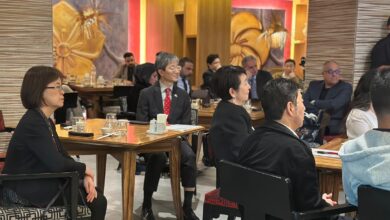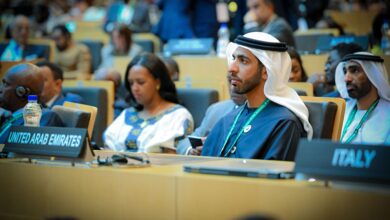Kuwait enforces ban on converting visits to work or family residency
The Ministry of Interior stressed that both sponsors and sponsored are accountable for visa violations, with expatriates pledged not to request conversions and expected to honor this commitment.

-
The Ministry of Interior will enforce legal measures against those violating the law and ensure both sponsors and visitors adhere to visit time limits to avoid legal consequences.
-
The ministry will strictly enforce laws against non-compliance, holding both sponsors and visitors accountable. All visitors must leave before their visa expires to avoid legal issues.
-
In February, the Ministry of Interior introduced new visa rules: family visas need a salary of at least 400 dinars, other relatives require 800 dinars, and a round-trip ticket with a pledge not to convert visits into residency.
A security source confirmed that visits will continue despite some violations, which will be addressed firmly. The source noted that visits cannot be converted into work or family residency under Article 22. Expatriates have signed pledges not to request such conversions, and they are expected to honor these commitments, according to Al Anba newspaper.
Additionally, the Ministry of Interior announced the deportation of a new batch of expatriates, including a Jordanian, his wife, and children, for violating family visit regulations.
The ministry reiterated that accountability extends to both ‘the sponsor and the sponsored’ as part of its ongoing efforts to monitor visa violators.
A statement from the Ministry of Interior said, “In line with the instructions and directives of Sheikh Fahd Al-Yousef, the First Deputy Prime Minister, Minister of Defense, and Minister of Interior, we aim to facilitate procedures related to visits while adhering to the conditions and controls. Key requirements include not violating the visa validity period and not exceeding the specified duration of stay according to the type of visit.”
The General Department of Residence Affairs Investigations—Department of Violators Follow-up—has continuously monitored and arrested several visa violators and their sponsors. One case involved a Jordanian resident who brought his wife and children under a family visit visa. They disappeared after the legal visit period ended and remained in the country.
The statement added that necessary legal measures are being taken against them in preparation for their deportation from the country. This action is due to the sponsor’s failure to adhere to the pledge he signed when requesting the family visit visa and violating the conditions despite his valid residency. The deportation will include the husband, wife, and children.
The Ministry of Interior confirmed that it will continue to enforce all necessary legal measures against those who do not comply with the law and will make every effort to arrest and hold accountable both “the sponsor and the sponsored.” All visitors must adhere to the specified time limit of their visit and depart upon its expiration to avoid legal consequences.
The deportation of new arrivals follows a recent announcement by the Ministry of Interior regarding the deportation of female residents who had applied for visas for their husbands and children under ‘family visit’ categories. These residents exceeded the legal period of stay, prompting legal action and their subsequent deportation.
Last February, the Ministry of Interior outlined new controls for receiving visit applications (family, commercial, and tourist). For a family visit entry visa, it is granted to the father, mother, wife, and children, with the requirement that the breadwinner’s salary is not less than 400 dinars.
For other relatives, the salary requirement is at least 800 dinars. Additionally, a round-trip ticket on a national airline is required, along with a written pledge not to request a conversion of these visits into residency. Visitors must also agree to adhere to the visit duration and receive treatment only in private hospitals and health centers, not in government hospitals.
The commercial visit visa is issued based on a request from a Kuwaiti company or institution and is granted to individuals with university or technical qualifications relevant to the company’s activities and work.
The tourist visit entry visa is available to citizens from 53 countries and can be obtained either directly at the port of entry upon arrival or through an electronic visa via the Ministry of Interior website at www.moi.gov.kw.
For residents of Gulf Cooperation Council (GCC) countries, tourist entry visas are issued to individuals with professions specified in Ministerial Resolution No. 2030/2008 and its amendments.
These visas are granted according to the controls and requirements outlined in the resolution and can be processed through hotels and companies with automatic connections to the General Administration of Residency Affairs system, following the established requirements.












